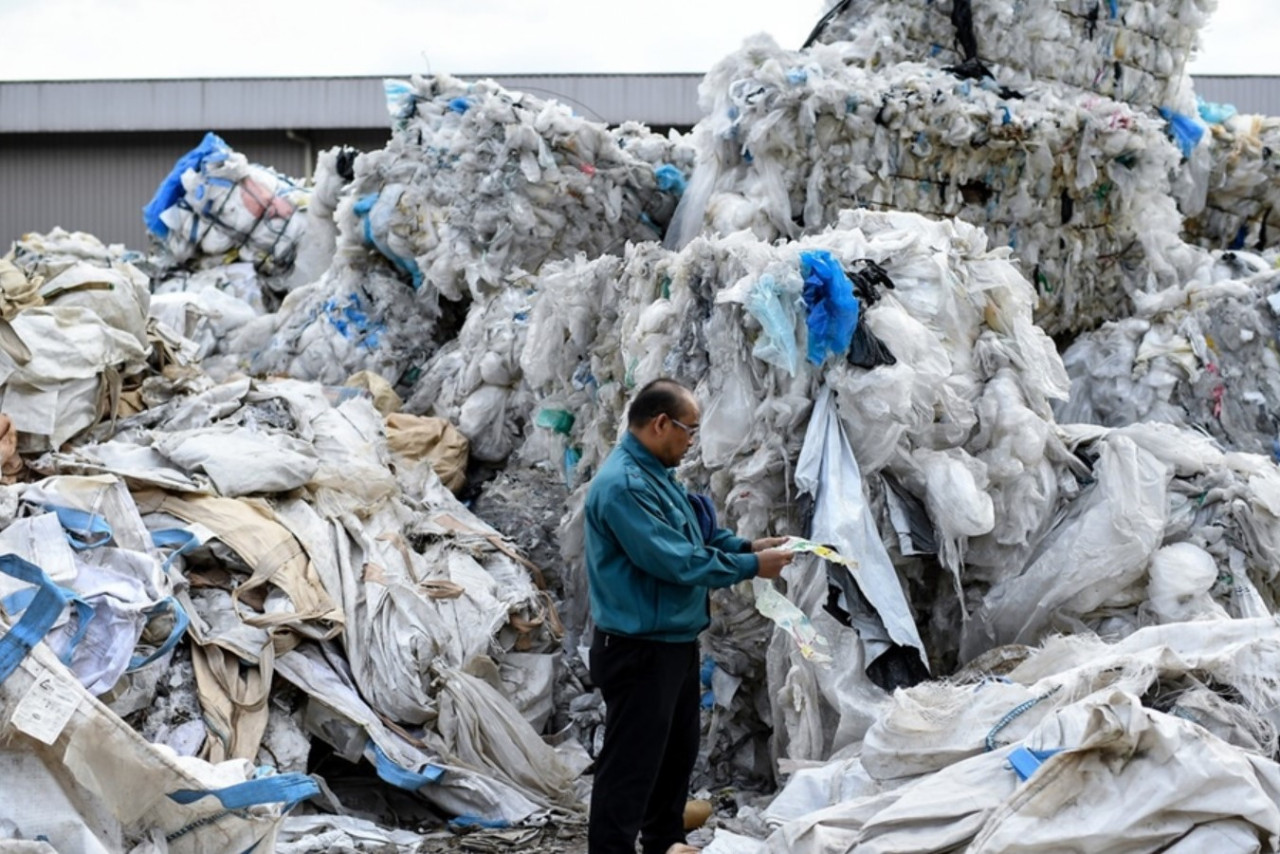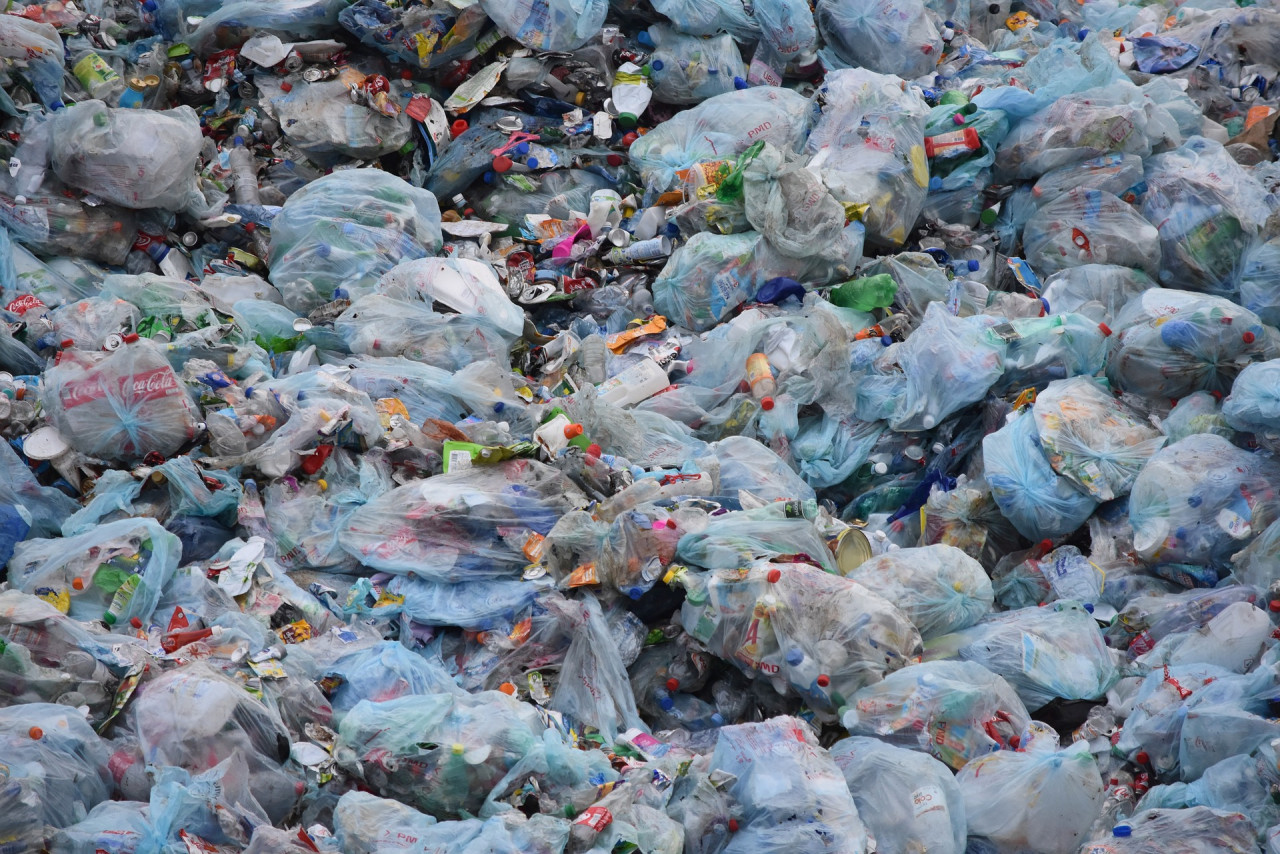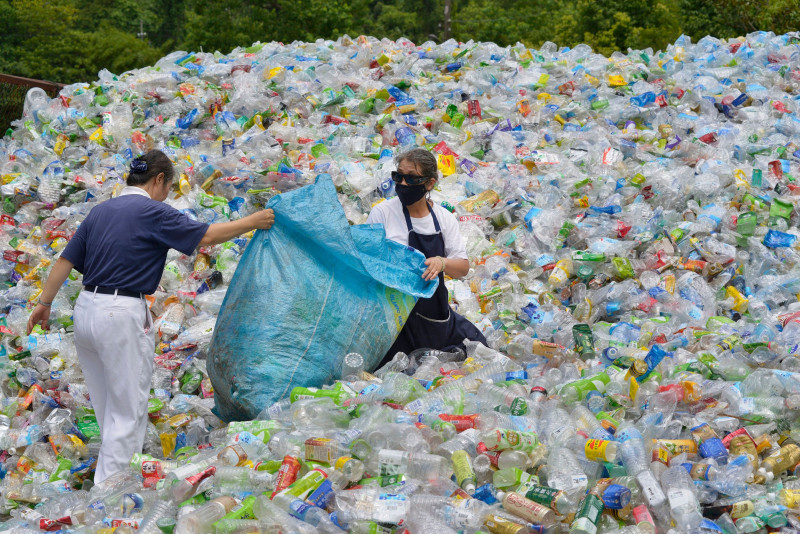BEAT Plastic Pollution is the theme for this year’s World Environment Day. The data put out by the UN Environment Programme is staggering. Around the world, one million plastic bottles are purchased every minute, while up to five trillion plastic bags are used worldwide every year. Plastic production keeps growing, with half of all plastic produced designed for single-use purposes.
Since the 1970s, the rate of plastic production has grown faster than that of any other material. If historic growth trends continue, global production of primary plastic is forecasted to reach 1,100 million tonnes by 2050. Approximately 36% of all plastics produced are used in packaging, including single-use plastic products for food and beverage containers. It is estimated that 85% of these end up in landfills or as unregulated waste.
Globally it is reported that we produce about 400 million tonnes of plastic waste every year. Of the seven billion tonnes of plastic waste generated globally so far, less than 10% has been recycled. We cannot recycle our way out of the plastic crisis. To eliminate plastic pollution, the production of plastics must be capped through global reduction targets.
Plastics are made from carbon (fossil fuels) and chemicals, and toxic chemicals are released throughout their life cycle. About 98% of single-use plastic products are produced from fossil fuels. Moreover, the level of greenhouse gas emissions associated with the production, use, and disposal of conventional fossil fuel-based plastics is forecast to grow to 19% of the global carbon budget by 2040.

At the fifth UN Environment Assembly in March 2022, all 193 UN member states decided to end plastic pollution. Civil society groups are united in calling for a strong treaty to address the health, climate, biodiversity, and human rights harms that come from the full life cycle of plastics, and not just the end of life.
The second meeting of the Intergovernmental Negotiating Committee (INC-2) for the new global agreement to end plastic pollution concluded recently on June 2 at the Unesco headquarters in Paris. The five-day negotiations stalled for almost two days due to the derailing attempt of certain parties with strong vested interests in the oil and petrochemical industry to make the potential treaty as weak as possible so that fossil plastic production can continue unabated.
The industry also continued to have a presence during the negotiations, including at side events where they promoted false solutions such as “plastic offsetting,” a scheme that does not “offset” either plastic production or pollution.
However, there were some positive outcomes from the INC-2 where some countries called for global reduction targets on plastic production, and the talks have advanced from a focus on plastic as a waste and pollution problem, to the current movement towards a treaty that addresses the threats to health and biodiversity from chemicals throughout the plastics life cycle, and prioritising a just transition to safer and more sustainable livelihoods for workers across the plastics supply chain.
In Malaysia, the government launched its Roadmap Towards Zero Single-Use Plastics 2018-2030. Recently, it was announced that the government is aiming to ban the use of plastic bags for retail purchases across all business sectors nationwide by 2025. This is commendable but we need more urgent action and more single-use plastic products to be phased out and banned. Most food packaging is designed to be for single use and not to be recycled. This creates environmental impacts and health issues depending on the materials used. Letting corporations continue their business as usual will simply promote false solutions to the plastic waste crisis and plastic pollution will continue.

While the increase in plastic recycling is seen as a solution to the plastic pollution problem by most governments and corporations, plastics containing toxic chemicals should not be recycled at all and instead be considered non-circular materials. Plastic materials include a wide range of toxic chemicals that are added to them, and when recycled these toxins may end up in toys and consumer goods that could threaten people’s health. Until the thousands of hazardous chemicals used in plastics are eliminated, recycling will remain toxic.
To beat plastic pollution, we need the government to drive the change including implementing policies to cap plastic production and ensuring corporations transition from plastic products and packaging to safe alternatives. For consumers, we need to reduce waste generation on the whole, and this can start from being mindful of what we are consuming or purchasing. There are many options for delivery systems including refillable and reuse systems.
As the Break Free From Plastic movement states, if left unchecked the global plastics crisis can only escalate and worsen the major planetary threats the world faces today, including the climate emergency, serious biodiversity loss, unprecedented toxics, and microplastics pollution, all with profound implications on human health and human rights.
Let us unite to beat plastic pollution. – The Vibes, June 5, 2023
Meenakshi Raman is president of Sahabat Alam Malaysia, an independent nonprofit that aims to ensure that the nation’s development choices and management of natural resources are sustainable and ecologically sound, guided by the principles of environmental justice







.jpeg)










_president_Muhammad_Azlan_Abas-Najjua_Vibes_pic.PNG)


